Excerpts from the Essays
PART 4: Making Space: Calls to Open Paths
The essays in the fourth section ... focus on the lack of opportunities for "different" individuals and groups to thrive in our universities. They describe various obstacles that these individuals and groups have faced-and continue to face; celebrate some of the ways they have surmounted them; and/or advocate other ways of transforming or opening up the situation.
Yesterday and Today: Academic Activism and Nomadic Paths
by Jamie Magnusson, Critical Theorist, Ontario Institute for Studies in Education/University of Toronto.
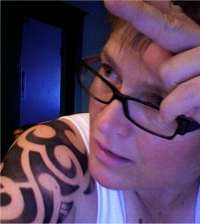
|
I have been a musician. I have been a single mother. I am queer. I am a martial artist. I can draw on all these, and any others I can access, to accent my own life practices in ways that are entirely inventive.That's what I meant earlier in this chapter when I spoke of how education can be a beautifully chaotic space when populated by real people: people who are more than their brief, monolithic, and highly institutionalized social histories as trained psychologists, sociologists, or biologists. However, this requires a kind of nomadic practice, but one committed to an ethics of working toward mutually nourishing relationships in the process of dismantling relationships that hierarchize and subjectify.
|
Transforming the University from an Aboriginal Perspective
by
Jo-ann Archibald, Q'um Q'um Xiiem, University of British Columbia.
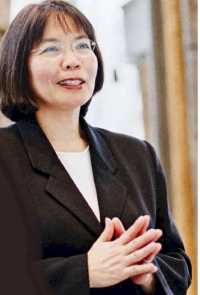
|
The first draft of this article was written while I was on an island off the west coast of British Columbia. From my window, I watched the waves of the ocean roll toward the shore. The first wave made me think of the Aboriginal academics who first worked at Canadian universities during the 1960s-1990s and who are still academics, or have retired, or have passed to the spirit world. They include Marlene Brant Castellano, Joe Couture, Gail Guthrie Valaskakis, Freda Ahenakew, Olive Dickason, LeRoi Littlebear, Carl Urion, Stan Wilson, Verna J. Kirkness, and Eber Hampton. Shortly after the first ocean wave has touched the land, the second wave follows and, over time, the land may be altered by the combined impact of the waves. I position myself as part of the second wave of Aboriginal academics who are now in academe. In this article, I pay tribute to those who made their imprint upon the university to make it more responsive to providing university access and relevancy to Aboriginal learners; highlight the opportunities and challenges of the second wave of Aboriginal academics; and suggest possibilities for the third and subsequent waves of Aboriginal scholars.
|
Engaging Race, Anti-racism, and Equity Issues in the Academy:
A Personal Odyssey
by George J. Sefa Dei, Social Anthropologist and Sociologist, Ontario Institute for Studies in Education/University of Toronto.
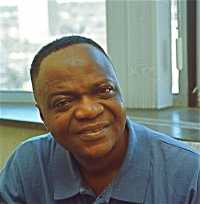
|
I believe we need to create safe and decolonized spaces to engage discussions about race and other forms of oppression within the academy and the public sphere. ... Achieving this is not easy and it becomes more challenging as our universities shift to commercial knowledge production and become obsessed with maintaining the right image to attract funds from governments and corporate clients. This is not an innocent development. Privileging the production of knowledge that puts universities in good standing with governments and corporate funders means that faculty members, students, and staff who engage some of the tough, critical questions of our time may be scrutinized, if not policed, to ensure that their work does not create a moral panic or offend political or corporate sensibilities.
|
Feminists in Academe: From Outsiders to Insiders?
by Joan Sangster,
Historian, Trent University.
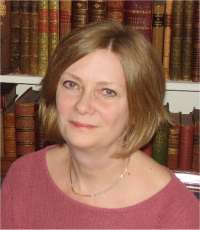
|
Unfortunately, we also found that feminism could accommodate itself to academic life and institutions in reformist, even acquiescent forms; after all, gender equality can be tailored to fit into existing professional hierarchies. Feminism might alter the face of a masculine university, certainly for the better, but it could also take on alarming forms, shape-shifting to become individualist, competitive, careerist, thus absorbing the long-time ingredients of academic life. ... Universities when I started were ruled by old boys. Now there are dynamic women at the top, yet this has not altered the pernicious influence of a more corporate agenda in higher education.
|
An Ode to Wisdom: Got, Don't Got, Borrowed, and Sought
by Elizabeth (Bessa) Whitmore, Social Work Educator, Carleton University.
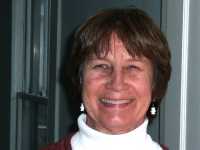
|
As I reflect back on this zigzag journey, I realize that I got lucky. All those potholes and detours kept me grounded. I'm so glad now that I couldn't take the straight road, which leads directly, and only, to the centre. There, as bell hooks suggests, one sees only the centre, a relatively small reality, and has no idea, really, what goes on outside of that quite elite world. ... The principles I have ended up keeping intact were a respect for the democratic process, the importance of participation, and being myself. The struggle continues, however, for me as an individual and for the transformation we seek. We need to model the kind of world we want, not the one we are presented with.
|
The University and Its Political Economy:
An Academic Callings Interview with Joel Bakan, Legal Scholar, University of British Columbia
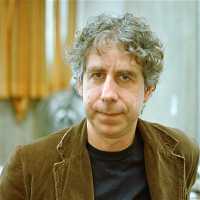
|
But the problem is broader than the university. If there isn't a strong commitment to the idea of the university in the broad social order, there isn't a lot for politicians to gain by supporting it. Discussions in the business section of newspapers tell me that business is not so much criticizing particular things that governments do as much as it is criticizing the idea and existence of government itself. In other words, it is challenging the very idea that citizens should have any say over what happens in the economy. This attitude passes on to the university, an institution that exists to serve the public interest and provide a public service. If it is not involved in producing widgets for the marketplace, it is treated as suspect. That, to me, is the fundamental problem.
|
Part 1:
Against All Reason:
Wake-up Calls
Part 2:
Taking Stock of Personal and Institutional Histories:
Calls to Account
Part 3:
Between a Rock and a Hard Place:
Calls to Administrative Leadership
Part 4:
Making Space:
Calls to Open Paths
Part 5:
Re/generating Publics:
Calls to Collectivity
|
|